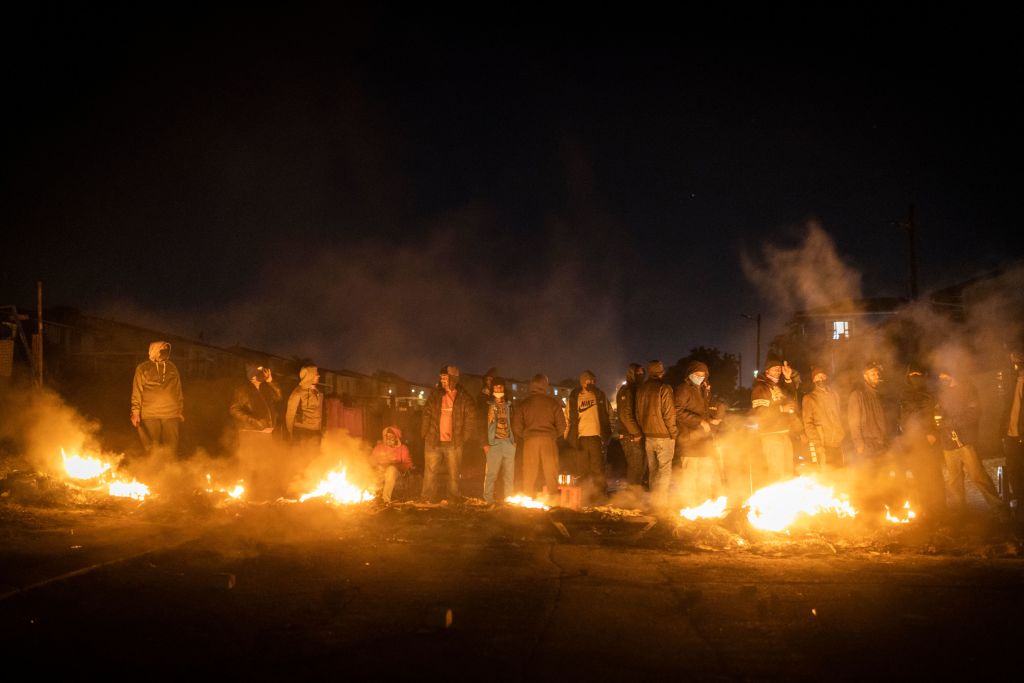- Saturday, April 20, 2024

By: Pramod Kumar
PEOPLE have lost jobs and investors are withdrawing money following the unrest that has ripped through South Africa last week, reported The Times.
Fingers are pointed at the African National Congress (ANC), now in power for 27 years, the report added.
Last week looting and destruction rolled across its economic heartland of Gauteng (including Johannesburg and Pretoria) and KwaZulu-Natal, which includes the country’s two biggest ports, Durban and Richards Bay.
Around 120 people have died, many hundreds are injured and hundreds of shopping malls, supermarkets, warehouses and factories have been burnt down. Armed vigilantes guard many suburbs.
President Cyril Ramaphosa recently claimed that the situation was stabilising and calm has been restored to most of the affected areas. But not many people are convinced.
According to reports, the police has arrested over 2,500 people suspected to be involved in inciting violence.
The explosion of violence followed the jailing of former president Jacob Zuma for his flagrant contempt of court after he had refused to co-operate with the inquiry into the looting of the state under his presidency.
“The campaign began with the hijacking and burning of lorries. The police, scared and ineffective, watched but did nothing. Next came the looting and burning of a few shops. Again the police did nothing,” The Times report said.
“Most of the looters were unconcerned about Zuma’s fate: they simply realised that opportunity was staring them in the face. They flocked to the shopping malls and began to loot them. Quickly the spree spread to Johannesburg, home to many more Zulus, though many others joined in. Most of the looters were poor, on foot and took away their loot in supermarket trolleys, but some arrived in cars, sometimes very expensive cars.”
When the ANC was first elected in 1994 under the leadership of Nelson Mandela its posters promised ‘Jobs’. In 1995, the average number of unemployed according to official figures was 1,698,000. That figure has grown steadily to surpass 11.4 million, the report added.
The 11.4 million unemployed have, on average, two or three dependants, so we are talking of households comprising 30 million people — half the population.
According to The Times report, the government’s offer of an extra£900 million for already well-paid public service workers came only days before the unrest and was a blatant provocation to the unemployed.
Surveys show that South Africa’s Black Economic Empowerment (BEE) legislation is regarded by foreign investors as the biggest single obstacle to investing in the country.
The mining industry, for example, lost thousands of jobs under the new rule. The government is trying to force a Mining Charter, demanding ever-higher quotas, though the mining companies refuse to sign it.
Indian population
Most of South Africa’s Indian population live in or around Durban and they still have strong memories of the 1949 riots in which Zulus killed hundreds of Indians.
The Times report added: “This time the Indians saw trouble coming when others didn’t and the Indian township of Phoenix (where Gandhi once lived) was armed to the teeth. When looters arrived to pillage their shops and homes the Indians resisted fiercely and 20 people were killed. But the little Indian settlements to the north of Durban were more vulnerable.
“Verulam was all but destroyed and the Indian community there, having lost all its shops, retreated to the Indian suburb of Everest Heights and forbade Africans to set foot there. Vigilantes with guns, knives and axes patrol the streets. Africans who attacked one home were hacked with axes, the pictures circulating on social media.”
As a result of the unrest, the Covid vaccination programme has stopped and the frantic mixing of maskless looters is bound to produce a fresh spike.
According to the report, the ANC is more divided than ever and the already weak economy has taken a massive blow. Real incomes will continue to fall.
The ineptitude, cronyism and corruption of the party and its refusal to avail itself of white skills and experience have fatally weakened its ability to govern and it is steering South Africa steadily towards the status of a failed state, the report added.
![]()